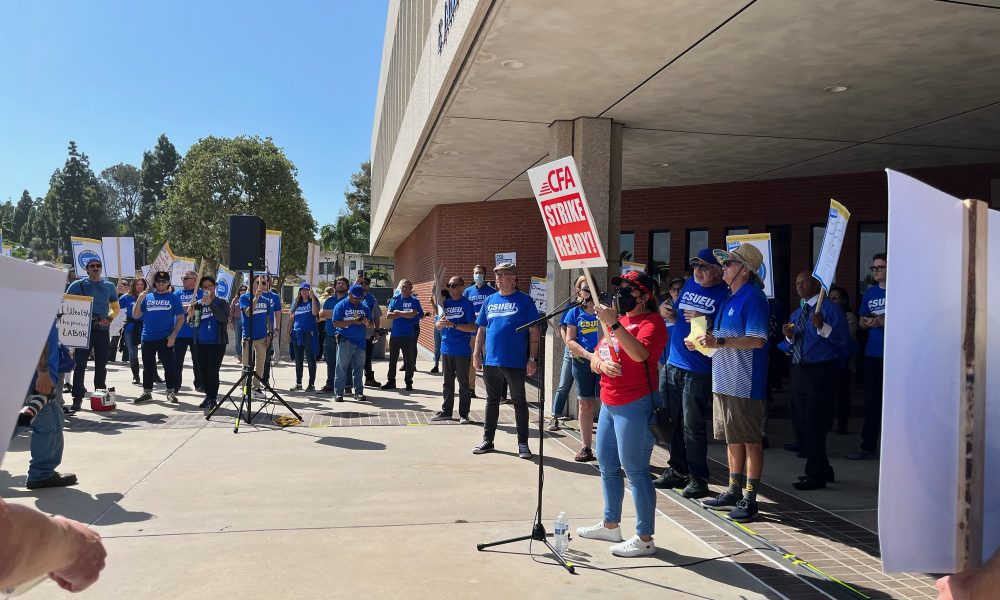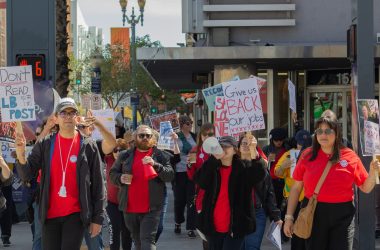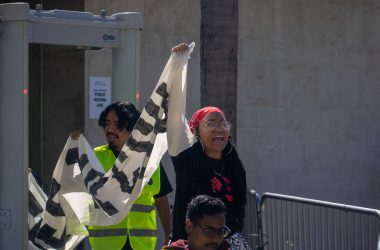The Senate Bill No. 799 was vetoed by Governor Gavin Newsom on Sept. 30.
“This is not a good decision for us because it would have given more protection to our workers,” Shelly Collins, co-president of the California Faculty Association, CFA, and a licensed psychologist at Long Beach State, said.
“It would have also had a better perception for the public, strengthened our case and it would have had a stronger impact on our negotiations.”
In his veto message, Newsom said his reasoning for the decision was that expanding the Unemployment Insurance Trust Fund to include employers who left due to trade disputes, “could increase California’s outstanding federal UI debt projected to be nearly $20 billion by the end of the year and could jeopardize California’s Benefit Cost Ratio add-on waiver application, significantly increasing taxes on employers.”
In a time when unions like the Writers Guild of America, WGA and Screen Actors Guild of America, SAG-AFTRA, were on strike, or are currently on strike. This veto “puts people at a deficit,” Collins said.
Matt Lesenyie, professor of political science at Long Beach State, said, “Labor action is important but, presents a real strain on workers due to the loss of income, among other costs, and uncertainty.”
According to Collins, when unions such as SAG-AFTRA are on indefinite strike, employees are not getting financial compensation. They have to resort to savings or other financial means to try and support themselves.
“Corporations and companies are about profit, ‘how can we get the most out of our workers by paying the least because then that increases our profitability or profit margins,’” Collins said.
She said striking is an advantage employees have to, “move the needle along.”
“Striking is an ability to be able to advocate as well as strengthen and push for safety, benefits and higher salaries … so that’s better working conditions,” Collins said. “That’s why it’s really important for us to have the right to strike because that is the only way that companies or organizations are able to meet us where we need them to meet us.”
Currently, the CFA is in the process of fact-finding. This is where a mediator between the CSU system and the union is allotted a few days to build a report. The report is then reviewed by both parties and depending on what the report says, a settlement is attempted to be reached.
“So the hope is that CSU comes back to the table with a settlement that works and that would be considered their final and best offer,” Collins said. “If that is rejected, then we strike.”
According to Collins, the union only strikes if 51 percent of paying faculty union members vote to authorize a strike.




